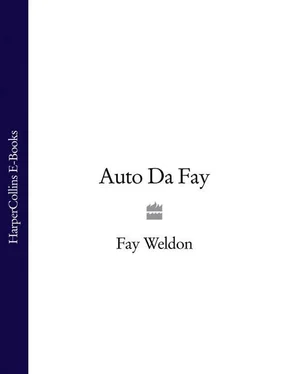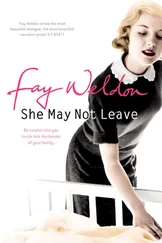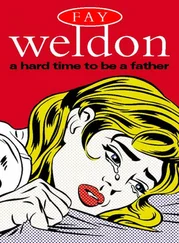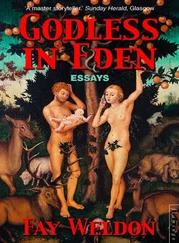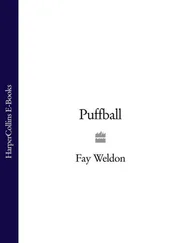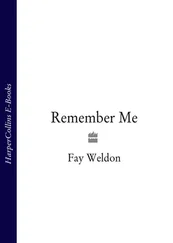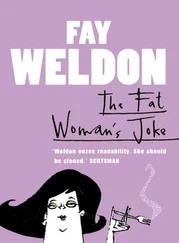Terrible things had happened at Adelaide Road in the past, of course they had. It was not in anyone’s nature to play safe – neither in the Jepsons’, nor the Holmeses’. Where there are angels there are devils as well, and sometimes they both take up residence in the one person. At one time Edgar had installed Lois in the house over the way, and Frieda had been summoned in the middle of the night to help her rival through a miscarriage. It would be a rare wife these days who would put up with such a thing, but wives were more helpless then, and besides, the doctrine of Free Love was offered by the bohemians of the time as an excuse for a great deal of hurtful activity.
It was in its name that my seventeen-year-old Aunt Faith was seduced by her mother’s brother, to the destruction of her life but with no apparent difference to his. Men are great theorists and when in full pursuit of ends which to them seem noble but are simply not, it’s an unwise woman who allows herself to be persuaded. Body blows can be dealt to family life, and a family seem to reel and recover, but not for long. The next soft tap can bring it tumbling down.
But while it stood how well it stood. Houses have heydays, just as people do, and that of 120 Adelaide Road ran for twenty years, from 1910 to 1930. In the good days Edgar would write in his study, Frieda play the piano, the nanny look after the three children, and the cook and maid who lived and worked in the basement in times of plenty, looked after everything else. There were literary parties to give and attend, nightclubs to go to, and the talk was of socialism, Free Love, eugenics, and Fabianism. The household income was erratic, and entirely dependent on the skill of Edgar’s pen. The carpets might stop at the first landing, yesterday’s cold rice pudding turn up in today’s soup (a habit of Frieda’s, my mother would complain) but there was comfort and conversation and good cheer. It was true that at one time Edgar tried to forbid talking at meals, following the example of Joseph Conard, but the attempt was doomed to failure. ‘Joseph Conard was a very bad-tempered man,’ said Frieda, ‘and hated his children. He said it was they who had driven him mad. Edgar could be moody and difficult, but at least he liked his children, and when it came to it, liked to hear what they had to say.’
There were twelve bedrooms in the house and the children could take their pick of them. All were unheated, all contained a bed, a rug, a mirror and a wardrobe and that was all, so it made very little difference which one they chose. They moved on every night, trying not to hurt the feelings of particular rooms by leaving them out.
During the four years of World War I, from 1914 to 1918, Londoners went cold and hungry and were bombed by German Zeppelins and that was the end of the cook and the maid. They left to take up war-work, which was better paid than domestic service. ‘I am not surprised,’ my mother said. ‘They lived in and had one afternoon a week off and were at our beck and call night or day.’ Frieda took over the cleaning and cooking and Edgar’s life continued easily enough. He was able to write of that time, in his Memories of an Edwardian, published in 1937, that ‘the war was the chief thing in one’s mind but it made little change in the routine life of a civilian past the age of active service. Bacon and eggs came to my breakfast: beef or mutton to my dinner with quiet punctuality; I did my day’s writing; I went down to Central London to play bridge at the Omega, or poker at the Savage.’ But presently he and his friend the poet Walter de la Mare were seconded to work for the Ministry of Food. Walter was put in charge of sugar rationing and Edgar produced The Win the War Cookery Book and a notable advertising poster, carrying a picture of a loaf of bread and the simple slogan, ‘Eat less bread’.
Many years later I tried to persuade the Smirnoff client to run the slogan, ‘Vodka makes you drunker quicker’, but they wouldn’t go with it. Too simple and to the point, though research had shown that people choose vodka rather than other spirits because it does indeed make them drunker quicker. Advertising must be seen to work, but not at the expense of the dignity of the client. Effectiveness and profit come a long way down a client’s list of requirements.
In his Memories Edgar speaks of Frieda thus. ‘I fell desperately in love with a lady in London…she had a greater natural charm and a better figure than any other woman I ever met. When we met she had just finished her training for the concert stage and had given one concert in Paris…Her father was Henry Holmes, the only English violist who ever enjoyed a European reputation, and her mother was a daughter of William Gale, a Royal Academician so old he must have been a contemporary of Benjamin West. As a child she had been used to go to tea at Holman Hunt’s.’ In fact Frieda and her sister Sylvia had as young girls sat as models for the painter, having the strong, rather noble features and the plentiful hair the Pre-Raphaelites so admired.
I was not to meet my grandmother Frieda until 1941, when after her mother’s death at the age of ninety-nine, she travelled from California to New Zealand, to join Margaret and ‘help with the children’. At her own request she was known to us all as Nona, that being Italian for grandmother. And this is what I shall call her from now on, because this is how I think of her.
She too suffered many changes of name: born Frieda Holmes, she became Frieda Jepson on marriage: Susan Jepson at her children’s request (Frieda being too Northern and too bleak for her, according to Edgar), and then she became Nona, because she couldn’t bear – as many women can’t – to be addressed as ‘Granny’ by her descendants. I think she was happiest as Frieda Holmes. My mother was Margaret Jepson, and then Birkinshaw, and that was that. She had a clearer personality than Nona or myself.
The run-up from Holmes to Jepson, for my poor grandmother, and no doubt for my great-grandmother, Mary Francis Holmes, was troubled, indeed traumatic. Edgar puts it like this in his Memories of an Edwardian. ‘We had been engaged but a little while when her father grew tired of England. It irked him to be at loggerheads, owing to his advanced views, which were almost those of Shelley, but rather more erotically practical, with the Council of the Royal College of Music, in those days a very stuffy and hypocritical band. It was said of them that they pooled the female students. He betook himself therefore to the city of Berkeley in California, and became its Musical Dictator, and when he died the inhabitants set up his statue in one of their public places.’
Which was all very well for Henry Holmes. Men have one name and stick to it. They go their own way, not having to absorb others on the way. Henry Holmes and Havelock Ellis, the sexologist, had seen fit to circulate a pamphlet extolling the virtues of Free Love and the dangers of standing in the way of the Life Force, and had included the Archbishop of Canterbury in their circulation list. Unfortunately, the Archbishop actually read it. The ensuing scandal was such that Henry had lost his post at the Royal College, and was obliged to flee to California, dragging poor Mary Francis and her teenage twins, Herriot and Hjalmar, with him. Nona, at the time a young concert pianist in Paris, a pupil of Clara Schumann and with one concert already under her belt, smeared by the scandal, was offered no more work. She married Edgar instead. He had to persuade her. ‘She had a theory that we were happier as we were,’ he writes, ‘but I did persuade her.’ I fear she was easily persuaded. She no longer had a home and what alternative was there? So from the age of six to the age of ninety-six she played the piano for between six and eight hours every day, but seldom to an audience.
Читать дальше
